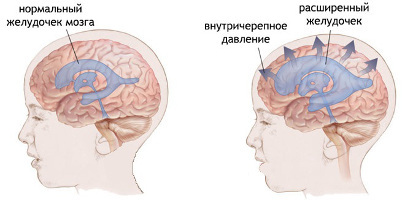Treatment of bulimia nervosa
 Some people notice that they begin to eat a lot, but they have a feeling of guilt and shame. There may be many reasons for this, but the most common cause is bulimia nervosa. This article provides a detailed description of this disease: signs, symptoms, causes and treatment of bulimia.
Some people notice that they begin to eat a lot, but they have a feeling of guilt and shame. There may be many reasons for this, but the most common cause is bulimia nervosa. This article provides a detailed description of this disease: signs, symptoms, causes and treatment of bulimia.
Treatment of bulimia nervosa.
Bulimia nervosa is an eating disorder in which a person has a "wolfish hunger".A person can eat a lot of food right away, and then try to get rid of it with the help of vomiting or using laxatives. People with bulimia are concerned about their weight and physique. Bulimia is associated with depression and other mental disorders. Some symptoms of bulimia coincide with the symptoms of anorexia nervosa, another important eating disorder. Since many people with bulimia can maintain normal weight, they are able to keep the disease in secret. If left untreated, bulimia can lead to malnutrition and even fatal complications.
Signs and Symptoms.
People with bulimia may have the following signs and symptoms:
- Excessive consumption of foods high in carbohydrates;
- Abundant food intake;
- Frequent exercise;
- Loss of control over food, with a sense of guilt and shame;
- The body weight, which "jumps" that up, then down;
- Constipation, diarrhea, nausea, gas, abdominal pain;
- Dehydration;
- Absence of menstruation;
- Damaged tooth enamel;
- Unpleasant odor from the mouth;
- Sore throat or mouth sores;
- Depression.
Causes of the disease.
No one knows the cause of bulimia, although there are several assumptions. Genes can play a role in the disease - there is evidence that the daughter can inherit the disease from the mother, if she suffered from bulimia. Psychological factors, including people who have low self-esteem, are not in a position to control impulsive behavior and anger.
People with bulimia may have had sexual abuse. People with bulimia can also experience depression, self-mutilation, substance abuse and obsessive-compulsive behavior. Cultural pressure can also play a role in the disease, especially among dancers and athletes.
Who is at greatest risk?
People with the following conditions or characteristics are at higher risk for developing bulimia:
- Middle-class women( mostly teenagers and students);
- People with a family history of affective disorders and substance abuse;
- People with low self-esteem.
Diagnosis.
People with bulimia are often ashamed of their situation and do not seek help for many years. By then, their habits are hard to change. If you have bulimia symptoms, you should talk to your doctor as soon as possible. The physician should check for signs of bulimia, such as erosion of the tooth enamel and enlargement of the salivary glands, as well as signs of depression. Laboratory tests can show the chemical changes caused by overeating and cleansing.
Treatment.
The most successful treatment combines psychotherapy, family therapy and medications. It is important that a person with bulimia takes an active part in the treatment of bulimia nervosa.
Drug therapy.
Antidepressants are often prescribed for people with bulimia nervosa. The most common antidepressants are selective serotonin reuptake inhibitors( SSRIs).They include:
- Fluoxetine( Prozac);
- Sertraline( Zoloft);
- Paroxetine( Paxil);
- Fluvoxamine( Fevarin).
Prozac is an antidepressant used to treat bulimia, although some studies suggest that other SSRIs, such as Fevarin, may be even more effective.
Some studies show that prozac and other antidepressants may cause suicidal thoughts in some children and adolescents. Children who take these drugs should be checked for signs of suicidal behavior.
People with bulimia can not get enough nutrients. Your health care provider can prescribe potassium or iron, or other supplements to compensate for any deficiencies.
Additional and alternative therapies.
Psychotherapy is the cornerstone in the treatment of bulimia. Cognitive behavioral therapy, which teaches you to replace negative thoughts and behavior with healthy ones, is a common method of treatment.
Other methods for stress relief are used, such as yoga, tai chi and meditation. They help you to know more about your body.6-week clinical trials have shown that controlled imagination helps people with bulimia to reduce overeating and vomiting, as well as controlling food intake.



